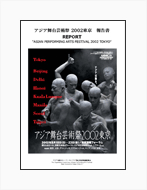On the Creation through International Collaboration program, the work of an Indonesian director was developed and performed as a full-fledged production after being selected from the short theatrical pieces presented at the previous year’s Workshop for International Collaboration. On the Workshop for International Collaboration program this year, three short original pieces were created and performed under the supervision of directors from Indonesia, Japan, and the Philippines. For APAF Art Camp, participants from the performing arts field based in Japan and other Asian regions stayed in Tokyo during Tokyo Festival to work on input including performance viewing, lectures, and field work, developing output as speeches, discussions etc. and holding an open presentation on the last day with a public audience.
APAF ARCHIVE
Asian Performing Arts Farm (APAF)
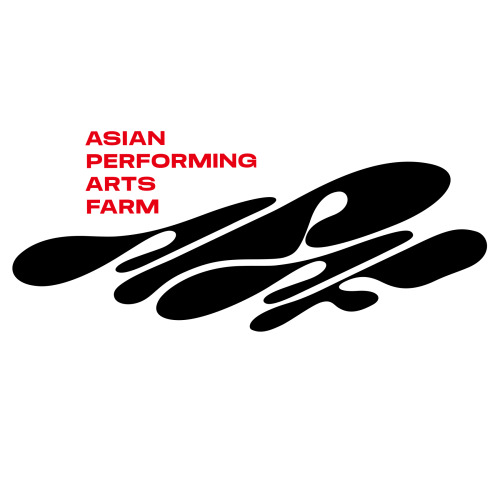
Asian Performing Arts Farm (APAF) is a development initiative under the Tokyo Festival that offers opportunities for artists in Asia to elevate their creative practice through mutual exchange, and expand their presence beyond national and cultural boundaries. The initiative was launched in 2002 as the Asian Performing Arts Festival with a view to promoting culture through artistic exchange between Asian regions. In 2016, it changed its name to “Asian Performing Arts Forum,” serving as a venue that brings young artists together. In 2018, Junnosuke Tada assumed the role of Director, taking over from former-Producer Satoshi Miyagi, who led the program for ten years. In 2019, APAF underwent a major remodeling, changing “forum” to “farm,” with the aim of providing “rich soil” for the next generation of artists to grow in an increasingly globalized age. The new logo, redesigned for 2020, adopts a free and flowing design.
Junnosuke Tada became Director in 2018, and carried out a remodeling of APAF the next year. The initiative’s name was changed from “Asian Performing Arts Forum” to “Asian Performing Arts Farm.” With its programs, APAF offers three spaces: the Exhibition, for artists to spread their “branches” through creation; the Lab, where participants can deepen their practice, firmly establishing and expanding their “roots”; and the Young Farmers Camp, helping the next generation to plant the first seeds for future growth.
The experience of the participants over the course of the initiative will inform a variety of outputs, including performances, presentations, and essays. The three programs will cultivate a “farm” that yields artists and programs that will contribute to the Asian performing arts scene of the future.
Communication Design
The position of Communication Design Director has been introduced at APAF in order to proactively engage with the issues that emerge at a site of international collaboration that brings together participants from diverse countries and cultures. The aim is to investigate and discuss the implications of different approaches to communication and dialogue, and set out appropriate guidelines.
ARCHIVE
APAF2020 Report
With the world in the grip of coronavirus, APAF director Tada decided early on to hold all programs online. Facilitators and participants rallied in support of his message that, while performing arts can hardly exist without physical bodies, it was an opportunity to try and expand the range of performing arts online. For the Exhibition program in particular, Tada took on the challenge of schemes that transcended the boundaries of online theatre; for example, events in which an audience gathered together on a video conferencing platform became the characters in a theatrical work. These programs achieved significant results in the midst of the pandemic while maintaining the APAF philosophy of sharing cultural distinctiveness and seeking to further elevate this vision.
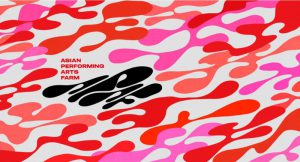
APAF2019 Report
APAF ran as three programs in 2019, when Junnosuke Tada became Director and implemented major changes to the APAF model. For Exhibition, which chiefly involved participants from the 2018 program, two directors from Japan and the Philippines produced and staged a collaborative work. Lab was an art camp taking place in two cities, Yogyakarta and Tokyo. With the increased density of communication, these programs acted as a forum providing each participant with insights and discoveries and helping them to overcome the associated challenges.
The Young Farmers Camp study group for artists in their 20s also encouraged new perspectives and insights in its young participants from the different values and huge amount of information they were exposed to through firsthand observation and experience of programs.
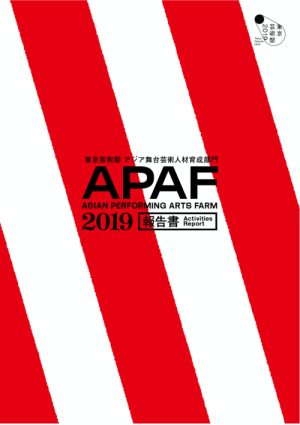
APAF2018 Report
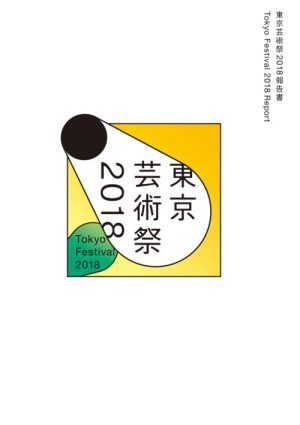
APAF 2017 Report
Young artists in Asia collaborated in co-production of Performing Arts pieces.
As “Creation through International Collaboration,” one theatre piece was presented. As “Workshop for International Collaboration,” three short pieces were created and presented with Indonesian, Japanese, and Taiwanese directors.Also, as “APAF Art Camp・Wrap-up,” presentation by workshop participants, and symposium by workshop directors were held.
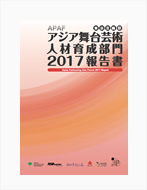
APAF 2016 Report
Young artists in Asia collaborated in co-production of new Performing Arts pieces.As “Creation through International Collaboration,” two theatre pieces were presented (Creation in Singapore, and Creation in Tokyo.) As “Workshop for International Collaboration,” three short pieces were created and presented as well. Also, after the shows, each director and cast for workshop presented and discussed their feedback at APAF Art Camp Wrap-Up.
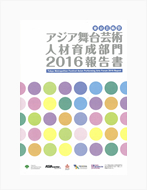
APAF 2015 Report
Young artists in Asia collaborated in co-production of new Performing Arts pieces. As “Creation through International Collaboration,” two theatre pieces were presented (Creation in Singapore, and Creation in Tokyo.) As “Workshop for International Collaboration,” three short pieces were created and presented as well.In Singapore, Tze Chien CHONG re-presented SEED. The “seed piece” received excellent reviews as a seed piece in 2013, and as a full-size version in 2014.For “APAF Art Camp,” 6 performing arts specialists from 4 countries were invited, and various programmes such as Round Table Discussion” were organized.
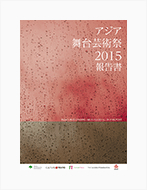
APAF 2014 Report
APAF2014 was the second year of the new system that young artists in Asia collaborate in co-production of new Performing Arts pieces. As “Creation through International Collaboration,” two theatre pieces were presented (Creation in Taipei and Creation in Tokyo.) As “Workshop for International Collaboration,” two short pieces were created and presented as well. For “APAF Art Camp,” ten performing Arts specialists were invited, and six programs such as Round Table Discussion were organized.
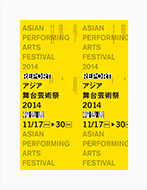
APAF 2013 Report
Young Asian artists gathered in Tokyo to co-operate in the production of six short plays as “Workshop for International Collaboration” in 2013. Also, we re-presented the production which got the excellent review last year as “Producer’s Special Presentation.” The “APAF ART CAMP” was held with more enhanced programmes as well.
Participant Interview
Shintaro MORI(APAF2013 – Director)Member of director section of
Toru SASAKI(APAF2013 – Director)Company Director of
Yuko KONDO(APAF2013 – Actress)
Chikako SUZUKI (APAF2013 – Actress)
Kiyo MISHINA(APAF2013-Assistant Director)Company Director of
Ryunosuke KIMURA(APAF2013-Assistant Director)Company Director of
Fumio Kakiya(APAF2013 – “APAF ART CAMP” participant)
Ayaka NISHI(APAF2013 – “APAF ART CAMP” participant)
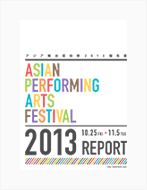
APAF 2012 Report
In 2012, the three completed international collaboration pieces by the artists from Seoul, Taipei and Tokyo were presented together at the reopened Tokyo Metropolitan Theatre as “Creation through International Collaboration”. In addition, the “Workshop-Extension for International Collaboration” was held, as well as the first “APAF ART CAMP”(Performing Arts International Collaboration Intensive Course), which aims to create a platform to develop future talents from Asia in the field of performing arts, providing them with opportunities for international collaboration and exchange. Six performing arts experts from six Asian cities were invited to participate in arts and cultural exchange, critique, and discussion.
Review
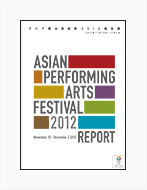
APAF 2011 Report
In 2011, as the 9th APAF, based on the positive feedback from the 2010 workshop, three selected 10-minute short pieces — called “seed-pieces”— were further developed through collaboration between artists in Seoul, Taipei, and Tokyo, into full-length works that were performed in those cities. An extended workshop entitled “Workshop-Extension (EXT) for International Collaboration” was also held in Tokyo in 2011. In it, artists from Hanoi and Tokyo worked together in two teams to create new small works under the theme “Family.”
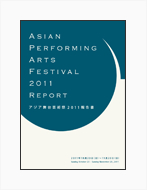
APAF 2010 Report
Young Asian artists were chosen and brought together in Tokyo to co-operate in the production of several short plays. Through this they deepened their understanding of each other’s cultures and together they sought new possibilities for Asian Performing Arts in the wider world.
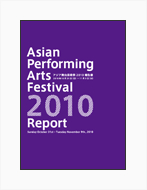
APAF Report in 2009 The 7th in TOKYO
The APAF 2009 presented the collaboration work with artists from the participating cities and also presented the showcase of the young cutting edge artists in Tokyo. The audience enjoyed encountering the Asian cultures though this festival.
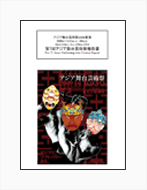
APAF Report in 2008 The 6th in SEOUL
The 6th Asian Performing Arts Festival was held at the same time with the annual Performing Arts Market Seoul.It started with splendid Opening Ceremony and Concert followed by various performances by some of the finest artists from Seoul, Taipei, Tokyo and Bangkok both inside and outside of the theater and attracted a large number of audience. It became a foundation stone for Asian Performing Art Festival of its further improvement in the future.
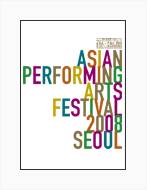
APAF Report in 2007 The 5th in MANILA
Booth exhibition introducing its history and showcase performances by talented artists from Manila, Delhi, Hanoi, Seoul, Taipei, and Tokyo were held in conjunction with the plenary meeting of ANMC21’s in Manila.
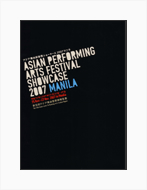
APAF Report in 2006 The 4th in TAIPEI
The theme of the year was “Asia Transperforming” – a combination of “transforming” and “performing.” By “performing” artists portrayed the “transforming” state of Asia.
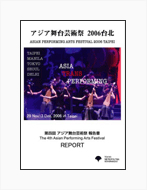
APAF Report in 2004 The 3rd in HANOI
Adding to a variety of programmes from Hanoi, Beijing, Seoul, Taipei, and Tokyo, Bangkok made its first appearance with an exotic traditional dance troupe as the special participant.
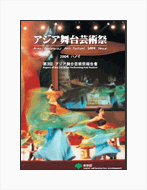
APAF Report in 2003 The 2nd in DELHI
Beijing, Seoul, and Tokyo, and Delhi as the host city, participated with a wide variety of stage performances, seminars and workshop. The festival venue was packed with audience.
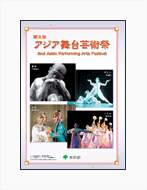
APAF Report in 2002 The 1st in TOKYO
Through stage plays, dances and performance of unusual instruments from Asia, previously introduced little in Japan, thus mutual understanding and cultural exchange at the citizen’s level were promoted.
